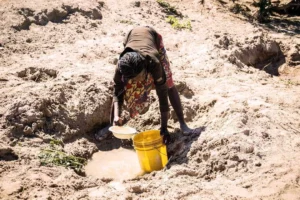Zambia has declared a national emergency as a severe drought, worsened by El Niño, ravages food and electricity production across the country.
The warmer Pacific Ocean disrupts rainfall, leading to reduced precipitation and heightened drought conditions.
Zambia’s 2023-2024 rainy season anticipates below-average rainfall, extended dry spells, and occasional heavy rainfall events.
However, these conditions threaten to intensify existing droughts, impacting essential food supplies and electricity generation.
El Niño’s influence, expected to persist until at least April 2024, is rapidly evolving.
It promises to raise global temperatures and trigger extreme weather phenomena, including heatwaves, floods, and droughts.

Research indicates a 90% chance that 2024 could see record-breaking global average surface temperatures, exacerbating climate crises worldwide.
Additionally, this includes marine heatwaves, ocean deoxygenation, biodiversity loss, and severe impacts on ecosystems and agricultural productivity.
China may face warmer winters and increased air pollution in 2023, followed by drought conditions and extreme rainfall in 2024. This highlights the global ramifications of El Niño’s effects.
The situation in Zambia serves as a stark reminder of climate change’s broader implications.
It underscores the urgent need for global preparedness and adaptive strategies to mitigate its impacts.
In addition, the World Meteorological Organization stresses the critical importance of effective early warning systems.
They safeguard lives and economies against the adverse effects of extreme weather conditions.
As El Niño intertwines with broader climate patterns, agriculture, and economic stability are affected.
It reveals the interconnectedness of global climate phenomena, emphasizing the necessity for international cooperation in addressing climate change challenges

